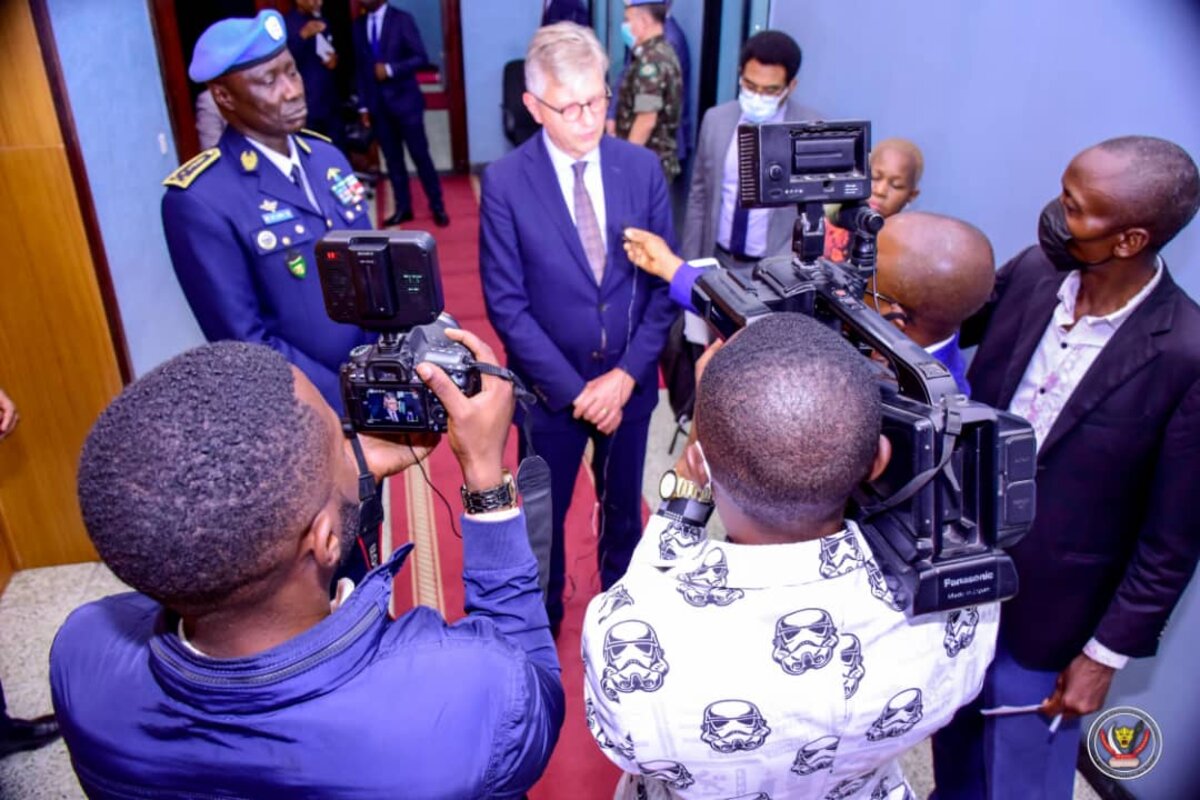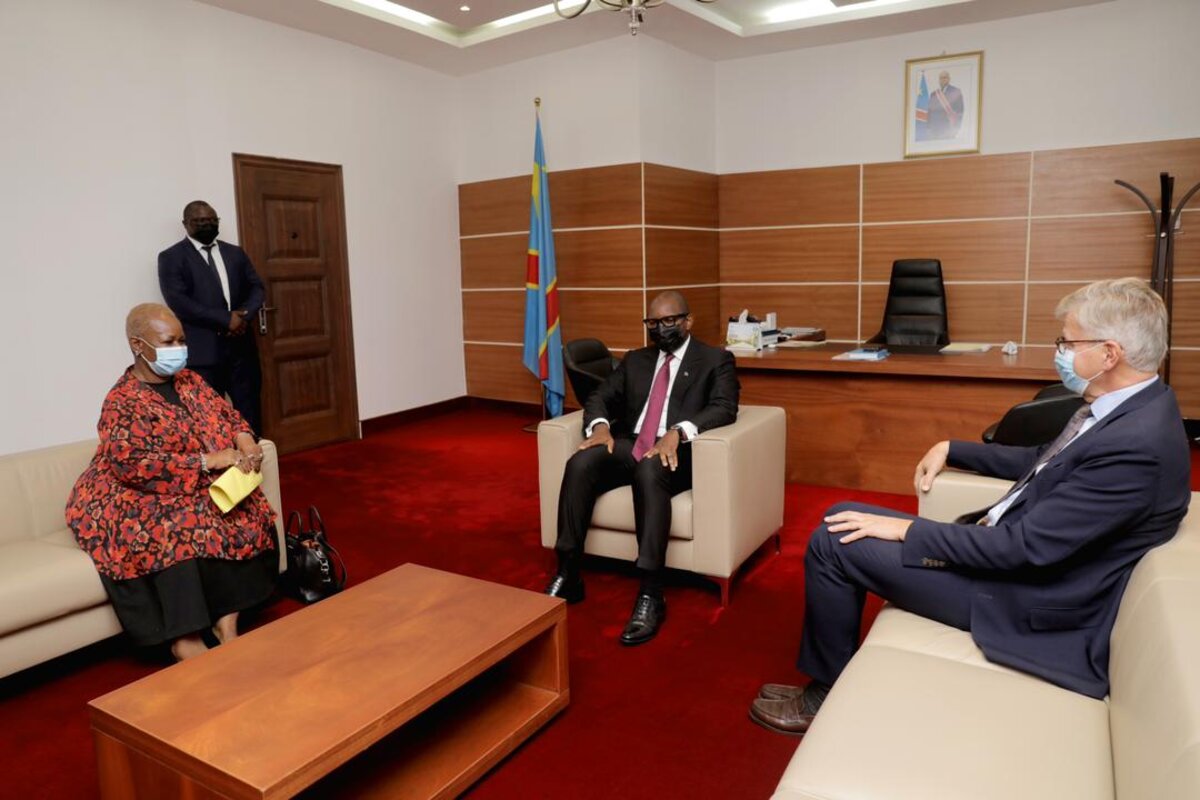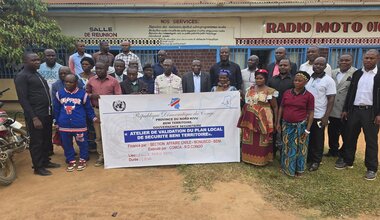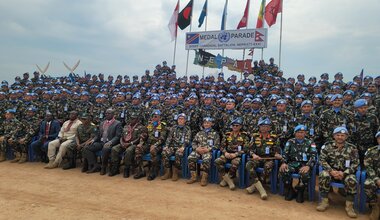Jean-Pierre Lacroix: "The population have told us: 'Stay and be more present'"
On the second day of his official visit to the Democratic Republic of Congo, Thursday, October 21, 2021, Jean-Pierre Lacroix, UN Under-Secretary-General for Peace Operations, met with DRC Head of State Felix-Antoine Tshisekedi Tshilombo at a Residential site known as the City of the African Union, in Kinshasa.

In addition to security issues, both personalities discussed the upcoming general elections scheduled in the DRC in 2023. Jean-Pierre Lacroix reiterated the United Nations commitment to provide support at the request of the Congolese government. He also expressed the hope to see this process unfold peacefully.
The day before, the Under-Secretary-General had met Prime Minister Sama Lukonde Kyenge with whom he discussed various issues including the one relating to the gradual and phased withdrawal of MONUSCO, the UN Mission in the DRC.
No inevitable departure of MONUSCO
"There is absolutely no plan that would have predetermined the inevitable departure of MONUSCO in three years, four years, or five years, because that would be an artificial timeline disconnected with the reality on the evolution of the situation in the country, and about the reality of the country”, said Jean-Pierre Lacroix to the journalists interviewing him at the end of the audience with the Prime Minister.

According to him, this gradual withdrawal is linked to the achievement of several objectives jointly defined by the Congolese government and the United Nations, including achieving progress regarding the security situation and the restoration of the State authority throughout the country, respect for human rights and promotion of women.
Furthermore, Mr. Lacroix raised with Sama Lukonde the implementation of the reforms of the Congolese Armed Forces (FARDC), which is key.
“Efforts need to be made on the security sector reform, including necessary and essential reforms for the FARDC; for establishing a lasting reinforced security environment (...) would imply ensuring that FARDC is able to keep a permanent presence, especially in the areas which have been recaptured from the armed groups, after the joint interventions”, he further explained.
The UN Peace Keeping Operations Chief, more particularly applauded the "excellent spirit of cooperation" in which this transition plan has been jointly prepared.
"We have agreed to do our utmost and you can count on the determination of MONUSCO and the whole of the United Nations System to implement this transition plan now," he assured.
Positive feedback from the populations
Although there are still efforts to be made in the security field, the Chief of the UN Peace Keeping Operations welcomed the positive echoes from the representatives of the population in the sectors where MONUSCO is deployed.

“In the areas where we are present, where we can be present - which is unfortunately not the case for all areas, because our resources are limited - the population have told us: 'Stay and be more present”, he explained.
Jean-Pierre Lacroix believes the challenge today is to strengthen both the use and the added value of the available resources, including MONUSCO Force Intervention Brigade (FIB).
“We have worked hard, in particular to strengthen the Intervention Brigade, the FIB, which is today more solid. But we are also working on all of our capacities, in particular our security capacities (…) and we also work in collaboration with the FARDC which has clearly strengthened and improved its capacities”, he assured.
Jean-Pierre Lacroix believes such an encouraging dynamic must be continued and strengthened in order to face the many challenges still present.
 UN
UN United Nations Peacekeeping
United Nations Peacekeeping






